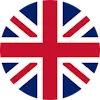Courses available in FR · EN · DE




Course overview
Certificate valid for 2 years
- Alert
- Protect
- Resuscitate
- Collaborate
- Assess
- Coordinate
Why take a BLS-AED-SRC course in Fribourg, Bulle or Villars-sur-Glâne?
Saving lives every day with first aid
Acquiring first aid skills is an essential act of civic responsibility. The BLS-AED-SRC (Basic Life Support – Automated External Defibrillator) training course prepares you to react effectively to life-threatening emergencies, such as a cardiac arrest or a stroke. You will learn how to perform cardiopulmonary resuscitation (CPR), use an automated external defibrillator (AED) and apply the X-ABCDE protocol for optimal management of vital priorities. These essential skills can save lives, whether in a personal or professional context, by strengthening collective safety within your community.
First aid training available in the canton of Fribourg (Fribourg, Bulle)
Provided in Fribourg, Bulle, Villars-sur-Glâne, Düdingen, Marly, Givisiez and throughout the canton, this training is aimed at both individuals and companies concerned about guaranteeing the safety of those around them or their employees. Whether you’re a forward-thinking citizen or an employer concerned about preventing occupational risks, the training sessions are tailored to your needs and easily accessible. This proximity enables learning that is targeted, realistic and directly applicable to local emergency situations.
Swiss Resuscitation Council (SRC) certification: a guarantee of quality and compliance
Certification issued by the Swiss Resuscitation Council (SRC) attests to your mastery of internationally recognised techniques that comply with the standards of ILCOR and ERC. You will be trained in the full range of first aid techniques, including cardiac massage, airway management and the use of a defibrillator, strengthening your ability to intervene in critical contexts.
A strategic asset for companies in Fribourg, Bulle and Villars-sur-Glâne
For companies in Fribourg, Bulle, Villars-sur-Glâne, Düdingen and throughout the canton, BLS-AED-SRC training is a strategic investment. It enables you to meet regulatory obligations while enhancing the skills of your teams. Training your staff to react in an emergency not only enhances safety in the workplace, but also demonstrates a strong commitment to the well-being of your employees. A culture of active prevention reduces risks and improves your organisation’s responsiveness to crises.
Whether you’re in Fribourg, Bulle or elsewhere in the canton, BLS-AED-SRC training provides you with valuable and essential skills to respond effectively in the event of a life-threatening emergency.
First aid training with SafetyFirst
By opting for SafetyFirst, turn your apprehensions into assets: our training courses clarify the complexities of first aid and meet your time constraints.
Our tailored modules ensure deep, immediately applicable learning, guaranteeing that every moment spent with us is a valuable investment in your safety and the safety of others.
SafetyFirst is the promise of comprehensive, accessible preparation to deal with emergencies confidently and effectively.
Certified trainers, ready to deliver training courses.
Success rate of training participants.
Average rating given by participants.
Companies trained in health and safety at work.
Certified trainers, ready to deliver training courses.
Success rate of training participants.
Average rating given by participants.
Companies trained in health and safety at work.
Your advantages with SafetyFirst

Interactive training
Our training courses combine interactivity and practice for a dynamic and engaging safety learning experience.

Customised training
We value your time: courses are scheduled around your availability to minimise operational disruption.

Certified Training
We incorporate international safety standards, finely tuned to your company’s local specifics.

EXCELLENT
Contents of the BLS-AED-SRC first aid course :
Duration and structure
The Training BLS-AED-SRC Complet(Basic Life Support – Automated External Defibrillator) is spread over 4 hours, combiningtheoretical and practical sessions. It is available inface-to-face, e-learning or blended format, offering flexibility to suit all needs. Modules cover essential concepts to ensure a thorough understanding of first aid techniques.
Techniques taught
Participants learn to master cardio-pulmonary resuscitation (CPR), the use of automatic defibrillators (AEDs), as well as the recognition and management of vital emergencies such as cardiac arrest, stroke or states of unconsciousness. The X-ABCDE protocol is also discussed for optimal care of victims. Ethical and legal aspects are included to ensure responsible intervention.
Practical scenarios
The practical exercises use dummies to simulate real-life situations. These simulations allow participants to strengthen their reflexes and coordination, while promoting collaboration and communication with other responders. Discussions around commitment to safety complete this immersive approach.
Accredited training
Under the continuing education regulations of the Swiss Society for Occupational Safety (SSST), this training counts as2 continuing education units (CEUs).
We're here to give you personalised help.
Fill in this form and our team will guide you towards the ideal option for your requirements.

FAQ about our BLS-AED-SRC training courses in the canton of Fribourg
The BLS-AED-SRC (Basic Life Support - Automated External Defibrillator) algorithm is a structured method developed by the Swiss Resuscitation Council (SRC) to guide first-aiders in the management of cardiocirculatory arrest. It is based on a clear sequence of actions designed to maximise the chances of survival and reduce complications in life-threatening emergencies.
The associated first aid training teaches essential skills such as cardiopulmonary resuscitation (CPR), high performance cardiac massage (HPCPR), and the use of an automated external defibrillator (AED). It also incorporates rapid alert to the emergency services and compliance with the X-ABCDE protocol, guaranteeing complete management of vital priorities: clearing the airway, controlling haemorrhage and monitoring vital signs.
Based on the latest international recommendations (ILCOR, ERC), this algorithm is aimed at both individuals and professionals. It is designed to be applied in a variety of contexts, including corporate or high-risk environments. By taking part in a BLS-AED-SRC training course, you will master this algorithm, becoming a key player in the chain of survival.
No specific pre-requisites are required to take the BLS-AED-SRC compact or full course. It is accessible to anyone aged 12 and over, whether an individual or a professional, wishing to acquire first aid skills.
The main content includes:
- Recognition of cardiac arrest: identification of vital signs and absence of normal breathing.
- Cardiopulmonary resuscitation (CPR): chest massage at a rate of 100-120 compressions per minute.
- Use of AED: correct placement of electrodes, analysis of heart rhythm and administration of shocks if necessary.
- Safety Lateral Position (SLP) to stabilise unconscious victims.
- X-ABCDE protocol: assessment and management of vital priorities, such as airway and haemorrhage control.
Yes, BLS-AED-SRC training is suitable for intervening with adults and children. For children, it includes specific techniques such as initial ventilations, cardiac massage with an adapted depth (1/3 of the thorax) and the use of standard AED electrodes if those for children are not available. Courses can also be customised for professional or special groups according to their needs (teachers, nursery staff, industrial companies, etc.).
- Compact course: 1 to 2 hours, including at least 30 minutes of practice.
- Full course: 3 to 4 hours, including practical scenarios and in-depth training.
The X-ABCDE protocol is a structured framework for the management of emergencies:
- X: Control of massive haemorrhage.
- A: Airway clearance and management.
- B: Assessment and assistance with breathing.
- C: Circulation maintenance (chest compressions, bleeding control).
- D: Identification of neurological disorders (level of consciousness).
- E: Environmental protection (prevention of hypothermia, etc.). It enables effective, prioritised intervention, maximising the chances of survival.
Yes, the certification is valid for 2 years. It is recommended that you take a refresher course each year, including at least 30 minutes of practice, to maintain your skills.
- Compact course (Basic Provider) : Focused on rapid learning of basic skills, it includes alerting, CPR and use of the AED, with simple scenarios.
- Comprehensive course (Generic Provider): Deepening skills, with complex cases, heart attack and stroke management, teamwork, and child/adult scenarios.
Outside the canton of Fribourd (Fribourb, Bulle, Villars-sur-Glâne, Düdingen (Guin), Marly, Givisiez , Romont etc.), we offer SRC-certified BLS-AED training in the following cantons and towns:
BLS-AED-SRC training in the canton of Vaud
<.ul>
- Lausanne
- Yverdon-les-Bains
- Nyon
- Vevey
BLS-AED-SRC training in the Canton of Geneva
- Geneva
- Carouge
- Meyrin
Canton of Neuchâtel./strong>
- Neuchâtel
- La Chaux-de-Fonds
Canton of Neuchâtel
-
- Sion
- Martigny
- Monthey
After completing this training, you can:
- Take a BLS-AED-SRC trauma course, including the management of complex trauma.
- Participate in IAS 1 training or IAS 2 to broaden your first aid skills.
- Become a BLS-AED-SRC instructor to pass on your knowledge.
- Integrate additional modules such as mental health first aid or conflict management.
Preparing today, protecting tomorrow.
#SafetyFirst #Training #Prevention #Health #Safety

